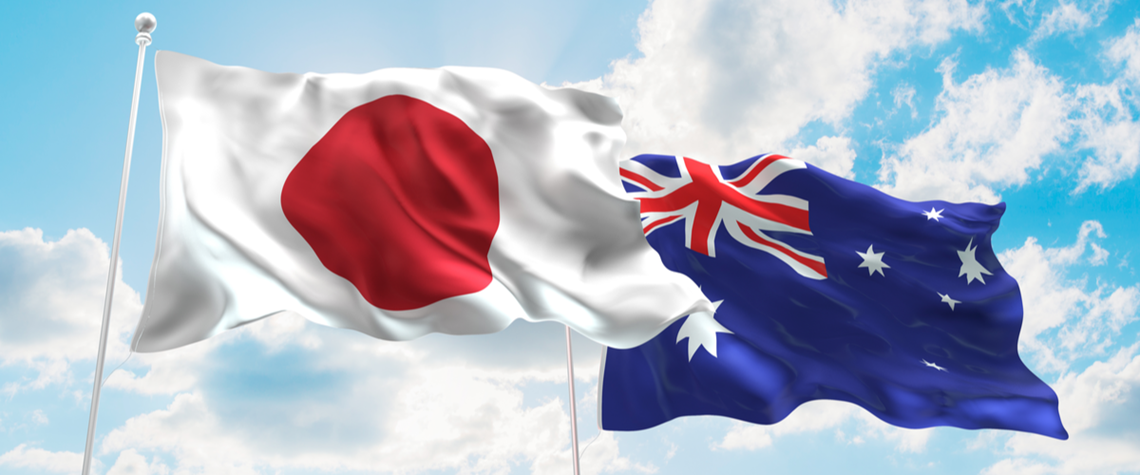New hydrogen supply chains are emerging in Asia Pacific as Australia looks to unlock its potential as a clean energy supplier to Japan’s decarbonising industrial and power generation sectors.
Australia is rapidly developing ties with export partners in Japan and aims to use its existing gas export infrastructure to ship hydrogen and derivatives such as ammonia to Japan. And at least ten memorandums of understanding (MoUs) linking major Japanese firms with hydrogen-related projects in Australia are already in place, according to PwC.
Transition Economist spoke recently to PwC’s Australia and Japan teams about the challenges and opportunities presented by the transition to net zero in their regions. Lachy Haynes is an integrated infrastructure, environmental transactions and advisory partner, based in Melbourne; Tatsumasa Itahashi is a director based in Tokyo; and Akira Naito is a senior manager based in Tokyo.
How do you see Australia’s role in the transition?
Haynes: We are in a global energy transition, and Australia has an important role to play in that—decarbonising our own domestic economy and enabling our major trade partners to decarbonise theirs.
Australia's domestic economy is not of the scale to support the sort of technology commercialisation and infrastructure development that is needed to support a new industry like hydrogen.
That said, the domestic economy is an important test bed and there are applications emerging in Australia. But it is the export market that will underwrite the capital investment and commitment to develop and commercialise new technologies.
How big an export opportunity is green hydrogen for Australia?
Haynes: Australia has the land, and the solar and wind resource to become a significant hydrogen producer. The question becomes, what is the extent of the market demand? The very significant commitments being made by jurisdictions like Japan to develop a hydrogen economy are critical on the demand side. There will not be a shortage of demand if everyone follows through on those policy initiatives.
Bilateral agreements are starting to happen. Australia and Japan have signed a joint statement of cooperation on hydrogen and fuel cells. There is a project in Victoria called the Hydrogen Energy Supply Chain Project, and that is a joint Australian-Japanese effort to develop the world's first international liquid hydrogen supply chain. And at the moment, there are about ten MoUs in place for the development of projects.
Tell us about Japan’s plans for hydrogen in meeting its net-zero goals.
Naito: The Japanese government is expecting hydrogen to play a big role. To decarbonise, hydrogen is definitely going to be part of this. The power generation industry is putting a lot of effort into hydrogen. The gas providers are also looking at the use of hydrogen as a useful method of decarbonisation same as methanation. That is why they are putting investment into Australia, supporting the development of renewables as well as electrolysers, then creating green hydrogen. So both sectors are taking it seriously, and chemical makers are also considering it.
The government is definitely putting in a lot of effort. And to show that there is the Green Innovation Fund, which is worth about $20bn, although this is not just for hydrogen.
How much hydrogen will Japan need to import from suppliers such as Australia?
Naito: There could be a small amount of hydrogen produced domestically, but most of it will be imported. This is because renewable power in Japan is very expensive—probably double or triple the price in Europe, because of the (Japanese) feed-in tariff as well as industry structures right now.
Itahashi: Japan’s Ministry of Economy, Trade and Industry estimates hydrogen imports will be 300,000t/yr in 2030. The government has a target price for green hydrogen imports of ¥30/Nm³ ($0.27/Nm³) delivered to Japanese ports. The Middle East is one of the options but, as of now, most of the discussions and projects by far are with Australia
What role will nuclear and LNG play in Japan as it transitions to net zero?
Naito: With nuclear, it depends on political decisions. But in general nuclear is still going to play a role, except maybe not the current technology. There is some discussion about small reactors and other technologies such as nuclear fusion. But there is still an expected role for nuclear power, especially from an energy security point of view. Japan is an island and not connected to a continent, and the power network is segregated within Japan too. We will not be able to just rely on the imported sources of energy. LNG will also play an important in the future, but it will be decarbonised—that is the plan.
There seems to be a lot riding on Australia’s ability to scale up hydrogen production. How challenging is this going to be technically and in terms of attracting capital investment?
Haynes: One of the questions in Australia is water for hydrogen production. It certainly is not going to require the volumes that some of the large water-consuming industries in Australia do, like mining and agriculture. But it is one of the key considerations in thinking about where your hydrogen project might be located. An innovative approach being explored is how wastewater volumes can be leveraged for electrolysis.
Australia has tended to be a net capital importer. If you look back at the great waves of industry development, like iron ore in the Pilbara and coal in the Bowen basin, Japanese offtake and investment has been a critical element. I anticipate we will see the same with hydrogen - there will be foreign capital deployed in Australia along with Australian project developers to get the projects up and running. And we are seeing that already. There is active engagement with Japanese organisations, both private sector and state actors, looking for opportunities in hydrogen.








Comments